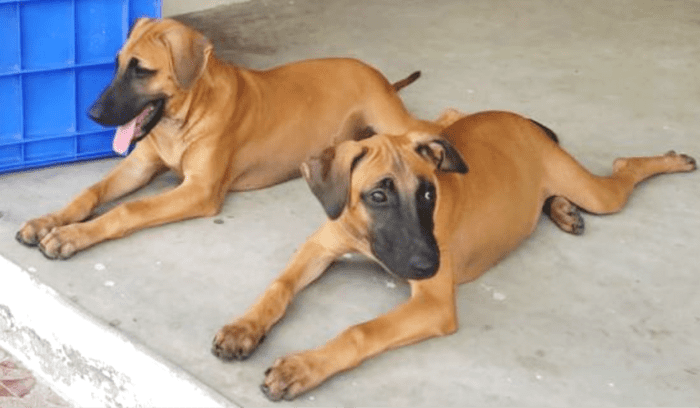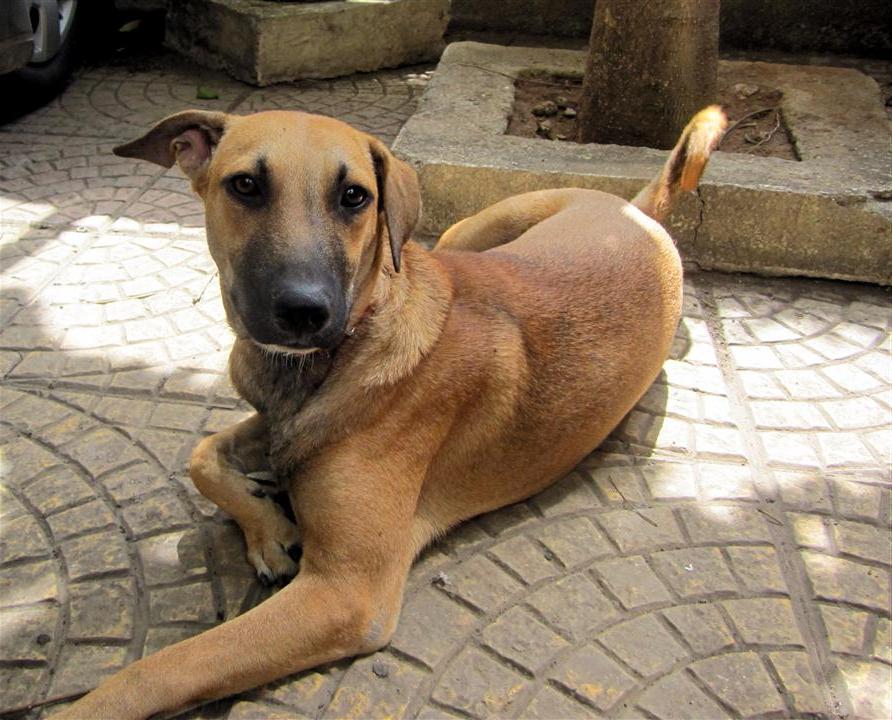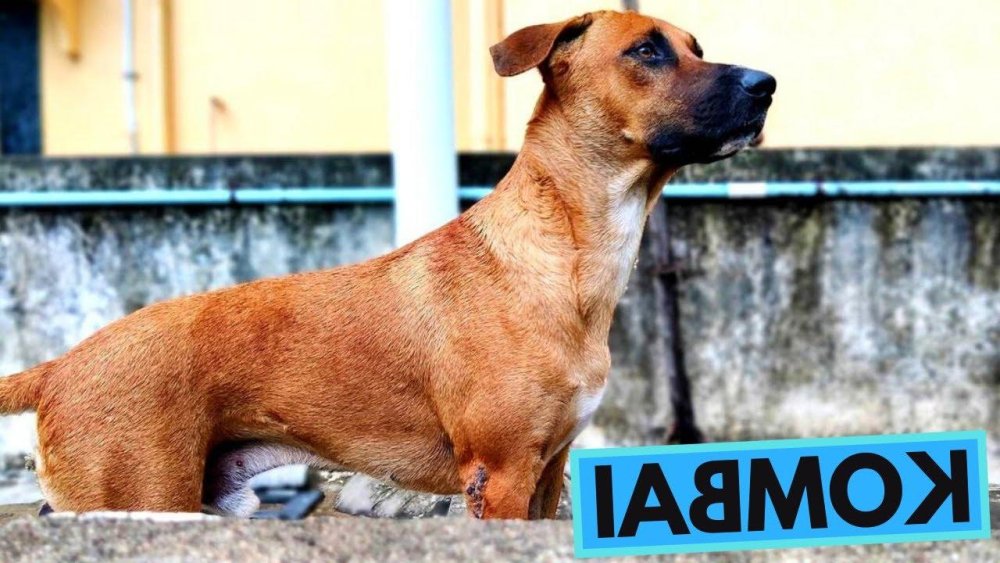- Breed Category: Working Dog
- Country of Origin: India
- Average Height: 55-65 cm (22-26 inches)
- Average Weight: 15-25 kg (33-55 pounds)
- Average Life Span: 12-15 years
- Grooming Requirements: Low, occasional brushing
- Exercise Requirements: High, needs daily exercise
- Coat Type: Short and dense
- Coat Color Variations: Red, brown, fawn
- Shedding Level: Moderate
- Ear Type: Erect
- Tail Type: Curved
- Temperament: Loyal, protective, intelligent
- Intelligence Level: High
- Barking Tendency: Moderate
- Compatibility with Children: Good with proper training
- Compatibility with Other Pets: May be aggressive
- Training Ease: Requires experienced handler
- Common Health Issues: Generally healthy
- Dietary Needs: High-protein diet recommended
- Energy Level: Very high
- Drooling Tendency: Low
- Sensitivity to Weather: Tolerates heat well
- Overall Maintenance Level: Moderate
- Original Purpose: Hunting and guarding
- Apartment Friendly: Not ideal for apartments
- Best Suited For: Active families, rural settings
- Cost of Ownership: Moderate
- Unique Traits: Strong prey drive, agile
- Cultural Significance: Valued in South India
Imagine a dog with a striking presence, a loyal heart, and a history as rich as the land it hails from. Meet the Kombai, a breed that stands out with its muscular build and keen intelligence. Originating from Tamil Nadu in southern India, the Kombai has been a trusted guardian and hunting companion for centuries. Known for its courage and agility, this breed was historically used to protect livestock and property. The purpose of this article is to delve into the Kombai’s unique characteristics, explore its storied past, and offer insights into its care. Whether you’re considering adding a Kombai to your family or simply curious about this fascinating breed, there’s much to discover.
The Kombai Dog: A Glimpse into Its Storied Past and Unique Traits

Early Development of the Breed
The Kombai dog, with its roots deeply embedded in the history of Tamil Nadu, has been around for centuries. This breed was developed by the indigenous people of the region, who needed a robust and reliable companion for hunting and protection. The Kombai’s evolution was shaped by the demands of the rugged terrain and the need for a dog that could withstand harsh conditions while remaining fiercely loyal to its human companions.
Role in Indian Hunting and Protection
Historically, the Kombai was more than just a pet; it was a vital part of the hunting expeditions in southern India. Known for its agility and strength, the Kombai excelled in tracking and capturing game. Its protective instincts also made it an excellent guardian of livestock and property, a role it continues to fulfil in many rural areas today.
Key Historical Figures and Regions Associated with the Breed
The Kombai’s legacy is intertwined with the history of the Maravar community, known for their warrior skills. This breed was a trusted ally in their endeavours, providing both protection and companionship. The regions of Theni and Madurai are particularly significant in the Kombai’s history, where the breed’s characteristics were honed and celebrated.
Physical Characteristics
With a muscular build and a striking appearance, the Kombai is easily recognisable. Its short, dense coat is typically reddish-brown, providing excellent camouflage in the wild. The Kombai’s keen eyes and alert ears are a testament to its intelligence and readiness, always on the lookout for any signs of danger or opportunity.
Appearance and Unique Physical Traits
The Kombai is a medium-sized dog with a robust and muscular frame, built for endurance and agility. Its short, dense coat is typically a rich reddish-brown, which blends seamlessly with the natural surroundings, making it an excellent hunter. Distinctive black markings often appear on the muzzle and ears, adding to its striking look. The Kombai’s eyes are sharp and expressive, reflecting its intelligence and alertness. Its strong, agile body allows it to move swiftly, a trait that has been honed over generations of hunting and guarding.
Temperament and Behaviour
Known for its loyalty and protective nature, the Kombai is a devoted companion. It’s naturally wary of strangers, making it an excellent watchdog. However, with its family, the Kombai is affectionate and gentle. This breed thrives on activity and mental stimulation, so regular exercise and engagement are essential. While it can be independent, the Kombai responds well to consistent training, showcasing its intelligence and eagerness to please.
Personality Traits and Suitability as a Family Pet

Typical Personality Traits
The Kombai is renowned for its loyalty and bravery. This breed is fiercely protective of its family, making it an excellent choice for those seeking a devoted companion. With a high energy level, the Kombai thrives in active households where it can engage in regular physical activities.
Suitability as a Family Pet and Guard Dog
As a family pet, the Kombai is both affectionate and vigilant. Its natural wariness of strangers makes it a reliable guard dog, always alert to potential threats. However, it bonds deeply with its family, offering both protection and companionship.
Interaction with Children and Other Animals
The Kombai generally interacts well with children, displaying patience and gentleness. Early socialisation is key to ensuring it gets along with other animals, as its protective instincts can sometimes lead to territorial behaviour.
Training and Exercise Needs
Training a Kombai requires consistency and patience. This intelligent breed responds well to positive reinforcement and structured routines. Regular exercise is crucial to keep the Kombai physically and mentally stimulated, preventing boredom and promoting overall well-being.
Training, Exercise, and Health of the Kombai Dog

Importance of Early Training and Socialisation
Getting a Kombai off to a good start with early training and socialisation is crucial. This breed is naturally protective and can be wary of strangers, so introducing them to various people, environments, and other animals early on helps them grow into well-rounded adults. The goal is to nurture their protective instincts while ensuring they are comfortable and confident in different situations.
Recommended Training Techniques
When it comes to training, consistency is key. Kombais respond well to positive reinforcement techniques, such as treats and praise. Structured routines help them understand expectations and build trust with their owners. Patience is essential, as this intelligent breed can sometimes be independent-minded.
Daily Exercise Requirements and Activities They Enjoy
Kombais are high-energy dogs that thrive on regular exercise. Daily walks, play sessions, and mental challenges are essential to keep them happy and healthy. They enjoy activities that engage their hunting instincts, like fetch or agility training, which also help to strengthen the bond with their owners.
Health and Lifespan
Generally healthy, Kombais have a lifespan of around 12 to 15 years. Regular vet check-ups, a balanced diet, and plenty of exercise contribute to their longevity. Being aware of any breed-specific health issues and addressing them early can ensure a long, happy life for your Kombai.
Health and Care of the Kombai Dog
Common Health Issues
The Kombai is generally a robust breed, but like all dogs, it can be prone to certain health issues. Hip dysplasia and skin allergies are occasionally seen, so regular vet visits are important to catch any problems early. Keeping an eye on their weight and ensuring they get enough exercise can help prevent joint issues.
Average Lifespan and Health Tips
With proper care, Kombais typically live between 12 to 15 years. To keep them healthy, provide a balanced diet rich in nutrients and ensure they have plenty of physical activity. Regular vet check-ups are crucial to monitor their health and catch any potential issues early.
Preventative Care Recommendations
Preventative care is key to a long, healthy life for your Kombai. Regular vaccinations, flea and tick prevention, and dental care should be part of their routine. Keeping their living environment clean and safe also helps prevent health issues.
Grooming and Maintenance
The Kombai’s short coat is low-maintenance, requiring only occasional brushing to remove loose hair and keep it looking its best. Regular nail trimming, ear cleaning, and teeth brushing are also important to maintain their overall health and hygiene.
Coat Care and Grooming for the Kombai Dog

Coat Care and Grooming Routines
The Kombai’s short, dense coat is a breeze to maintain. A quick brush once a week is usually enough to keep it looking sleek and healthy. This not only helps remove loose hair but also distributes natural oils, keeping the coat shiny. Regular grooming sessions are a great opportunity to check for any skin issues or parasites.
Shedding and Seasonal Grooming Tips
While the Kombai doesn’t shed excessively, you might notice a bit more hair during seasonal changes. During these times, increase brushing frequency to manage shedding and keep your home fur-free. A good bath every few months or when needed will also help maintain their coat’s condition.
Diet and Nutrition
A balanced diet is crucial for the Kombai’s health and vitality. High-quality dog food, rich in protein and essential nutrients, supports their active lifestyle. Fresh water should always be available. Consult your vet to tailor a diet plan that meets your Kombai’s specific needs, considering their age, weight, and activity level.
Nutritional Needs and Feeding Guidelines for the Kombai Dog
Nutritional Needs for Optimal Health
Feeding your Kombai a balanced diet is key to maintaining its health and energy. High-quality dog food with a good mix of protein, fats, and carbohydrates is essential. Proteins support muscle development, while fats provide energy. Carbohydrates are important for overall vitality. Don’t forget vitamins and minerals, which are crucial for bone health and immune function.
Foods to Include and Avoid
Include lean meats, fish, and vegetables in their diet. These provide essential nutrients and keep your Kombai in top shape. Avoid foods high in artificial additives, sugars, and unhealthy fats. Chocolate, grapes, and onions are toxic to dogs and should be kept out of reach.
Feeding Schedules and Portion Recommendations
Establish a consistent feeding schedule to help regulate your Kombai’s digestion. Typically, two meals a day are sufficient for adult dogs. Puppies may require more frequent, smaller meals. Portion sizes depend on age, weight, and activity level, so consult your vet for tailored advice.
Fun Facts and Trivia
Did you know the Kombai’s diet historically included rice and meat, reflecting its origins in rural India? This breed’s natural diet has evolved, but its love for meat remains strong. Kombais are known for their efficient metabolism, which helps them maintain energy levels during long hunting trips.
Interesting Tidbits and Famous Kombai Dogs
Interesting Tidbits about the Kombai Breed
The Kombai is not just any dog; it’s a breed with a rich cultural heritage. Known for its incredible stamina, the Kombai was historically used by the Maravar warriors, who valued its loyalty and strength. This breed is also known for its unique ability to adapt to the hot and humid climate of southern India, making it a resilient companion.
One fascinating aspect of the Kombai is its natural hunting prowess. Unlike many other breeds, the Kombai has a unique hunting style, often working in pairs to corner prey. This instinctive behaviour showcases its intelligence and teamwork skills.
Famous Kombai Dogs in Media or History
While the Kombai may not be as widely recognised in global media as some other breeds, it holds a special place in Indian folklore and history. Stories of Kombai dogs protecting villages from wild animals are common in Tamil Nadu. These tales highlight the breed’s bravery and unwavering dedication to its human companions.
In recent years, the Kombai has gained attention through documentaries and social media, where enthusiasts share stories and images of this remarkable breed, helping to preserve its legacy and promote its unique qualities to a broader audience.
Final Thoughts
The Kombai is a remarkable blend of loyalty and strength. This breed’s rich history and unique traits make it a fascinating companion. While its protective nature and high energy levels present challenges, the rewards of owning a Kombai are immense, offering both companionship and security. Embracing the Kombai means welcoming a piece of cultural heritage into your home, with all the joys and responsibilities it entails. Consider this noble breed if you’re ready for an active, devoted partner in life’s adventures.
